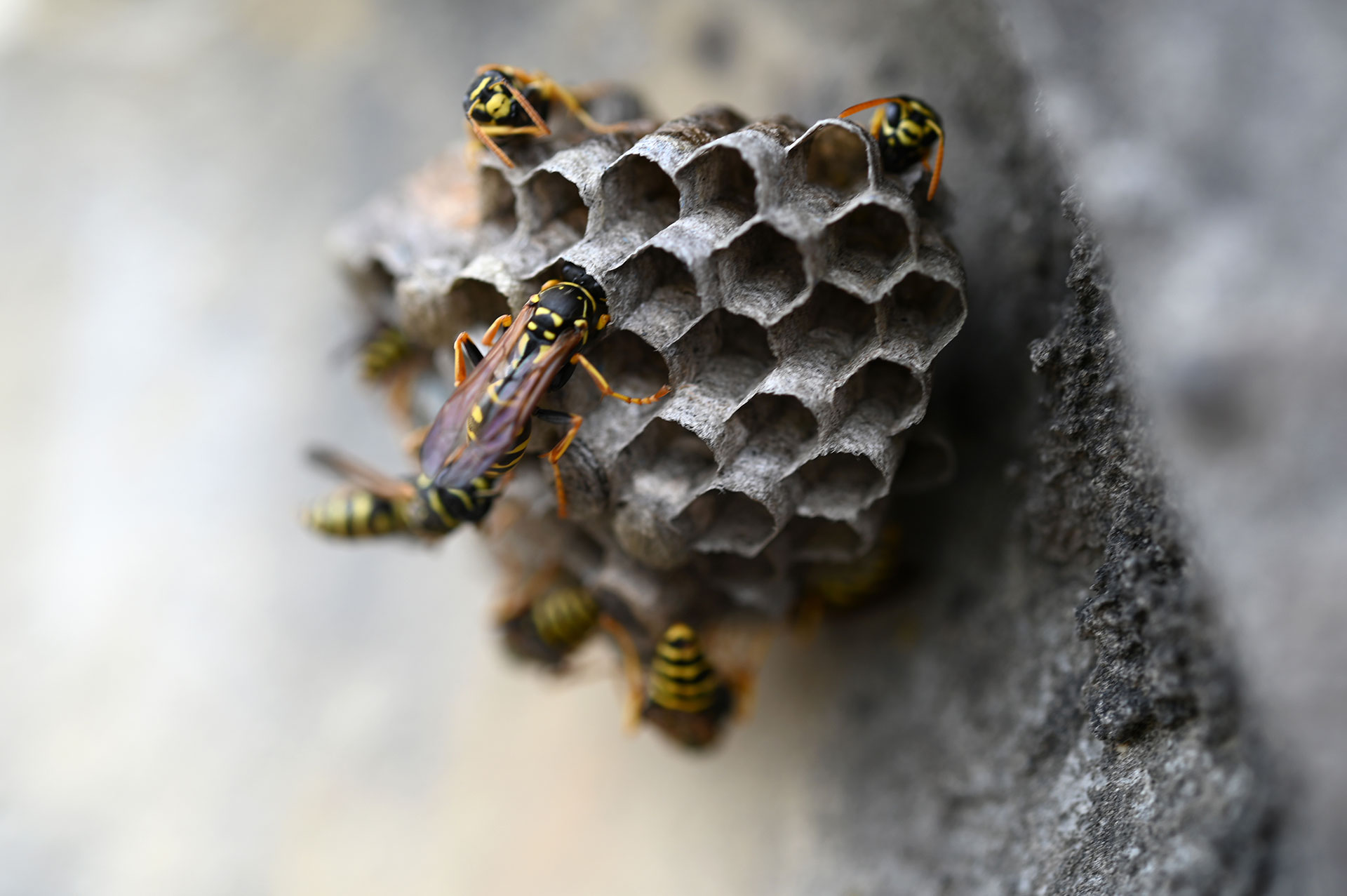How to Handle Aggressive Stinging Insects Around Your Home

When summer arrives in New England, so does the annual uptick in wasps, hornets, and other aggressive stinging insects. Warm temperatures and longer days trigger peak activity among these pests, especially species like yellowjackets and paper wasps, which can become territorial and dangerous when nesting near homes.
You may have an active nest nearby if you’ve spotted buzzing traffic near your roofline, porch, shed, or garden. Here’s how to stay safe, avoid stings, and manage the situation until a professional from The Bee Hunter can help resolve it safely and effectively.
Step 1: Observe, But Don’t Intervene
If you see wasps or hornets regularly flying in and out of a specific location, such as a gap in your siding, an eave, or a hole in the ground, you likely have a nearby nest. Resist the urge to investigate closely or poke around the area.
Many wasp species become highly aggressive when they perceive a threat to their nest. Some can sting multiple times and may chase intruders. Bees may also become defensive in large numbers if disturbed.
Stay back, observe from a safe distance (ideally indoors), and take note of the activity. Mark the location so others don’t accidentally get too close.
Step 2: Secure the Area
Until a pest control expert arrives, you’ll want to protect your family and pets.
- Keep children and pets away from the area.
- Use visible barriers like cones, chairs, or tape to prevent accidental contact.
- Avoid mowing the lawn or trimming shrubs near the nest—vibration and noise can trigger attacks.
- Post a sign indicating the nest is near a shared walkway or a neighbor’s yard.
Creating a safe perimeter is one of the most important steps you can take while waiting for removal.
Step 3: Reduce Attractants
Stinging insects are drawn to food, sugar, and strong smells. To reduce their presence around your home:
- Cover trash bins tightly.
- Clean up fallen fruit, sugary spills, or pet food left outside.
- Avoid using scented body sprays or perfumes when outdoors.
- Keep outdoor meals covered, especially sweet drinks and meats.
Limiting these attractants won’t remove a nest, but it can help reduce the number of insects patrolling your outdoor spaces.
Step 4: Avoid DIY Remedies
Using a can of wasp spray or attempting a homemade solution may be tempting, but DIY pest control often does more harm than good.
- Most sprays don’t eliminate the entire colony.
- Disturbing the nest can provoke an attack.
- Ground nests are especially dangerous and may not be visible until it is too late.
Professional removal ensures the nest is handled completely, safely, and without unnecessary risk to you or your family.
Step 5: Call The Bee Hunter
At The Bee Hunter, we specialize in the safe, humane removal of aggressive bees, wasps, and hornets. With years of experience across Massachusetts and surrounding areas, our team is trained to:
- Identify the species and assess the risk level.
- Remove or relocate the nest safely.
- Prevent future infestations with expert recommendations.
We understand that a wasp nest near your front door or a yellowjacket colony on your lawn can feel like an emergency. That’s why we offer responsive scheduling and quick service—so you can enjoy your yard without worry.
Stay Calm and Call the Pros
Dealing with aggressive stinging insects can be stressful, but you don’t have to go it alone. If you’ve spotted wasps or bees behaving aggressively near your home, don’t wait for the situation to escalate. Keep your distance, take precautions, and call The Bee Hunter for safe and effective removal.
Don’t risk a sting. Let us take care of the pests so you won’t have to.
Contact us today to schedule a safe and humane nest removal.
